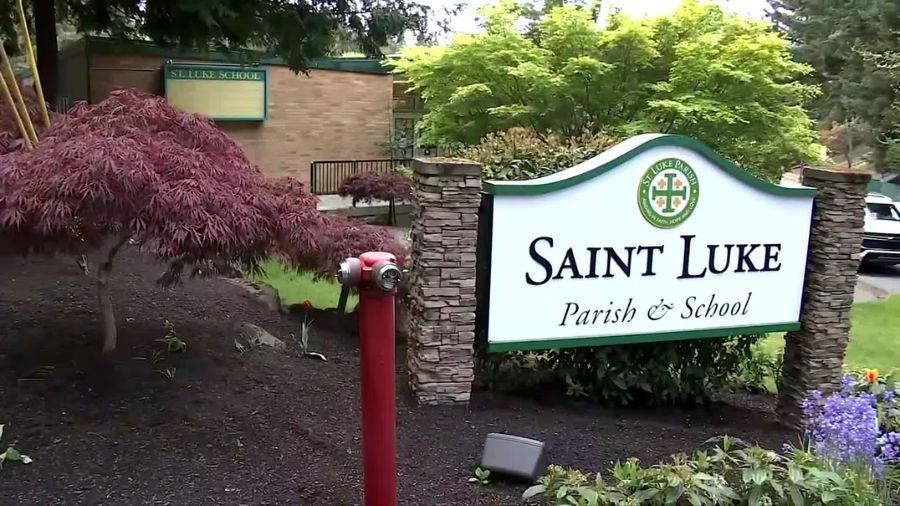Seattle small landlords blame regulations for 14% drop in properties
Mar 23, 2023, 2:38 PM | Updated: 3:20 pm

(Photo courtesy of KIRO 7)
(Photo courtesy of KIRO 7)
Small landlords throughout Seattle let their frustrations fly over a flurry of grievances they are facing during a meeting with a city council committee.
“Seattle needs to retain the existing housing that we have, and we need to build more, but at the same time, we are losing the affordable small rentals,” said MariLyn Yim, a property owner in District 6, during Wednesday’s Economic Development, Technology and City Light Committee meeting. “The barriers and risks and policy approaches that we have right now are untenable to have and maintain a stable and thriving small rental environment.”
Yim was also a lead plaintiff in the Pacific Legal Foundation’s suit against the city of Seattle over its “Fair Chance” Housing Ordinance.
Judge rules against Seattle ban on criminal background checks for renters
The share of small rentals dropped by 14% over the last four years, losing more than 4,000 units citywide. Tangentially, the percentage of large rental properties — property owners owning between 21 and 200 units — grew by 12% over the same time span.
“There really has not been any formal effort or any attempt to assess what’s been the impact of this [drop],” Yim said.
A small housing provider is defined as a landlord that owns and operates no more than 20 units. Local Stakeholder groups represented at the meeting included Seattle Grassroots Landlords (co-founded by Yim), the Rental Housing Association, and Housing Connector.
The group has met six times since last August, according to Capitol Hill Seattle Blog.
Yim cited a lack of analysis, information, support, outreach, and public safety as reasons for the growing frustrations among the group. In addition, the collection of small housing providers believes the city government is making it increasingly complex and contradictory for them to operate as landlords, with a rapid increase of tenant ordinances and laws from both the city and the state over the last six years.
A now-former small housing provider at the meeting claimed small landlords were selling to owner occupants, who are high-earners that can afford to buy. In turn, this reduces rental stock, something the coalition believes the city “desperately needs.”
“We feel very vulnerable to a bad situation in our home that there may be no resolution for,” Yim said. “In addition to us encouraging people not to buy in Seattle, which I hate to say, but every small landlord we know in Seattle has an exit strategy to divest and leave the city.”
Seattle lawyer: ‘Lot of reasons to reject somebody with criminal history’
The group believes excessive regulations are what’s driving these small landlords to sell. Yim cited 24 different tenant protections enacted by either the city or the state since 2016, a massive jump from the approximate average of one new ordinance/law every five years in the 40 years prior to 2016.
The city council underwent significant changes in 2016 when the city changed how it would elect council members through districts instead of a citywide vote for seven of the nine seats. District boundaries were included in the charter amendment and can be redrawn every 10 years by a five-member Districting Commission.
“Small housing providers are a critical component of Seattle’s small business community,” Councilmember Sara Nelson said.
Nelson, the Chair of the Economic Development, Technology, and City Light Committee, made it a point to get the small landlord group into the council chambers to discuss these growing concerns, a first for the coalition.
According to Nelson, 50% of Seattle residents are renters.
“My tenant refused to cooperate, refused social services or wellness checks and mediation, and ultimately, I had to spend over $20,000 in legal fees and eviction costs,” a former landlord from District 5 said. “And because he didn’t cooperate, none of the eviction programs would consider my situation or the lost rent.”
In addition to the previous concerns, safety and the lack of protections for landlords are causing these individuals to leave the real estate industry altogether.
Eviction notices one of most dangerous jobs a police officer faces
“Eviction day turned out to be one of the worst days of my life,” said a former landlord. “Aside from the cost, I was physically afraid, and rightfully so, as it turned out, my tenant barricaded himself inside and had five guns, one at every entrance to the house. Once I finally had possession of my home, I found $70,000 in property damage.
“Mind you, I’m not a corporation. I’m just a person. I have another full-time job,” the former landlord continued.













